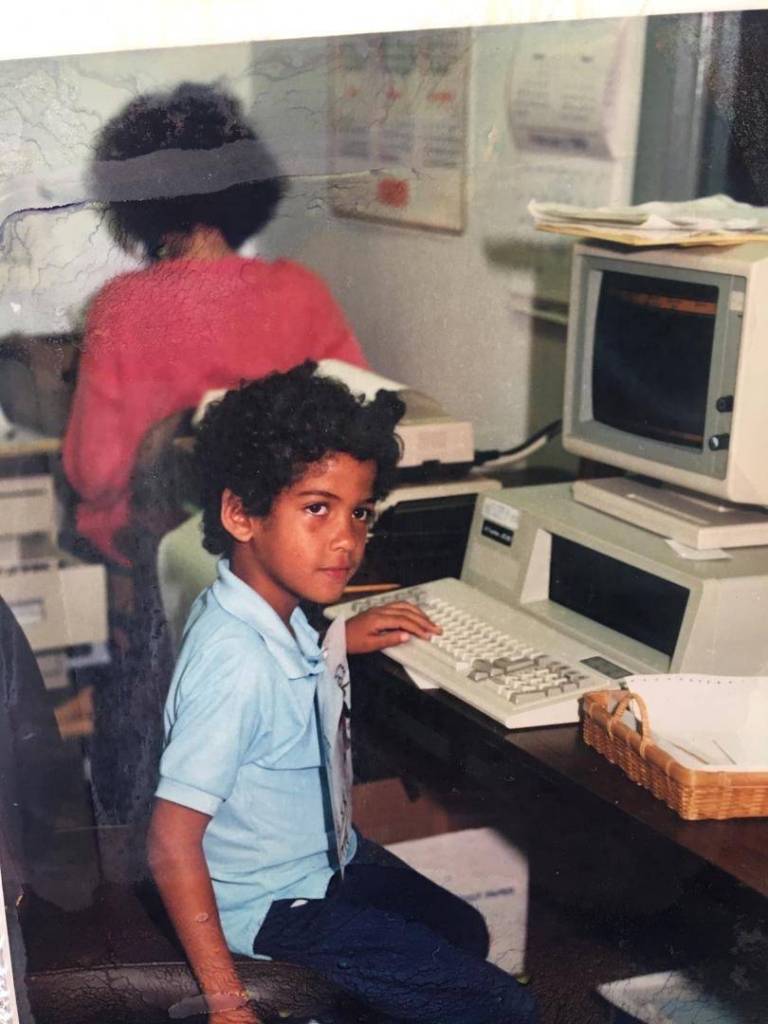Growing up, I always had an entrepreneurial spirit. My father owned a warehouse in Miami, USA where he imported crafts from Haiti and distributed them to large retailers like Walmart and Michael’s. I spent my summers working there, unloading and loading containers, cleaning the warehouse, and, of course, my favorite part—driving the forklift. Those early experiences gave me a firsthand look at business operations, but there were so many things I had to learn the hard way when I became a founder myself. Here’s a blurry picture of me at six years old at my dads office.

Looking back, here are five things I wish I had known before launching my first company:
1. Understand Finances and Accounting
One of the biggest lessons I learned is that understanding your company’s financials is non-negotiable. It’s not enough to have a great product; you need to deeply understand your margins, cost of goods, cash flow, and profitability. In my early days, I focused heavily on growth but didn’t fully grasp the financial mechanics behind scaling a business.
For example, if your cost of goods is too high or your cash flow is poorly managed, even a high-revenue company can run into trouble. Understanding your burn rate, budgeting for unexpected expenses, and ensuring profitability early on can save a lot of headaches. If I could go back, I would have invested more time in learning financial modeling and accounting basics before launching my first venture.
2. How Hard Fundraising Is and Investor Expectations
Raising money is a full-time job. It’s not just about pitching your vision; it’s about demonstrating traction, building relationships, and managing investor expectations. When I first started raising capital, I assumed that having a great idea and initial success would be enough to attract investors. I quickly learned that fundraising requires persistence, strategy, and a well-prepared founding team. In my 2nd startup, Reloadly (a payout rewards API for gift cards and prepaid cards) I had to pitch to 200 investors to close our seed round. The trick is to have conviction and not give up.
Investors want to see more than just passion. They need to know your team, your business product, and have a clear path to growth. They also expect regular updates—something I didn’t fully appreciate early on. Learning to do investor reporting, maintaining transparency, and setting the right expectations are critical to building trust and securing long-term support.
3. Empathy in Leadership
When I started my first company, I was young (23yrs old), ambitious, and driven—but also a bit ruthless. I focused entirely on results and didn’t always consider the emotional well-being of my team. Over time, I realized that leadership is not just about pushing people to perform but also about inspiring and supporting them.
People work harder and stay longer when they feel valued. I had to learn how to listen more, show patience, and create an environment where my team felt motivated rather than pressured. If I could do it over, I’d invest in leadership training early on and make empathy a core part of my management style.
4. Sales: How to Talk to Customers and Sell Your Product
Sales isn’t about convincing people to buy—it’s more about understanding their problems and offering the right solution. In the beginning, I thought I needed to be a great salesperson to sell my product. What I actually needed was to be a great listener.
The key to sales is asking the right questions. Instead of pitching, you need to understand what your customer is struggling with and tailor your solution to their needs. Some of my biggest deals came not from selling hard but from listening carefully and positioning my product as the best answer to a real pain point. If you’re starting a company, focus on customer conversations and product-market fit before anything else.
5. Hiring: The Most Important Decision You’ll Make
Your team can make or break your company. Early on, I made the mistake of hiring friends—people I liked but who weren’t necessarily the best fit for the business. At my first company, CallDirek, my first five hires were friends. While we got the company off the ground, many of them didn’t last long because the roles weren’t right for them.
Building a high-performing team means looking for A-players—people who are not only skilled but also share your vision and work ethic. The right team will set the tone for your company culture and drive success. If I had understood this earlier, I would have been much more intentional about hiring the best people rather than just those I already knew.
Final Thoughts
Becoming a founder is a journey filled with challenges and learning experiences. While nothing can fully prepare you for the ups and downs of building a business, these five lessons would have saved me time, money, and stress along the way.
If you’re thinking about starting a company—or already in the trenches—take the time to understand your financials, prepare for the realities of fundraising, lead with empathy, master sales through listening, and be intentional about hiring. These lessons won’t guarantee success, but they’ll put you on the right path.
And who knows? Maybe one day you’ll look back at an old photo of yourself, just like I do, and see the seeds of entrepreneurship that were planted long before you even realized it.

